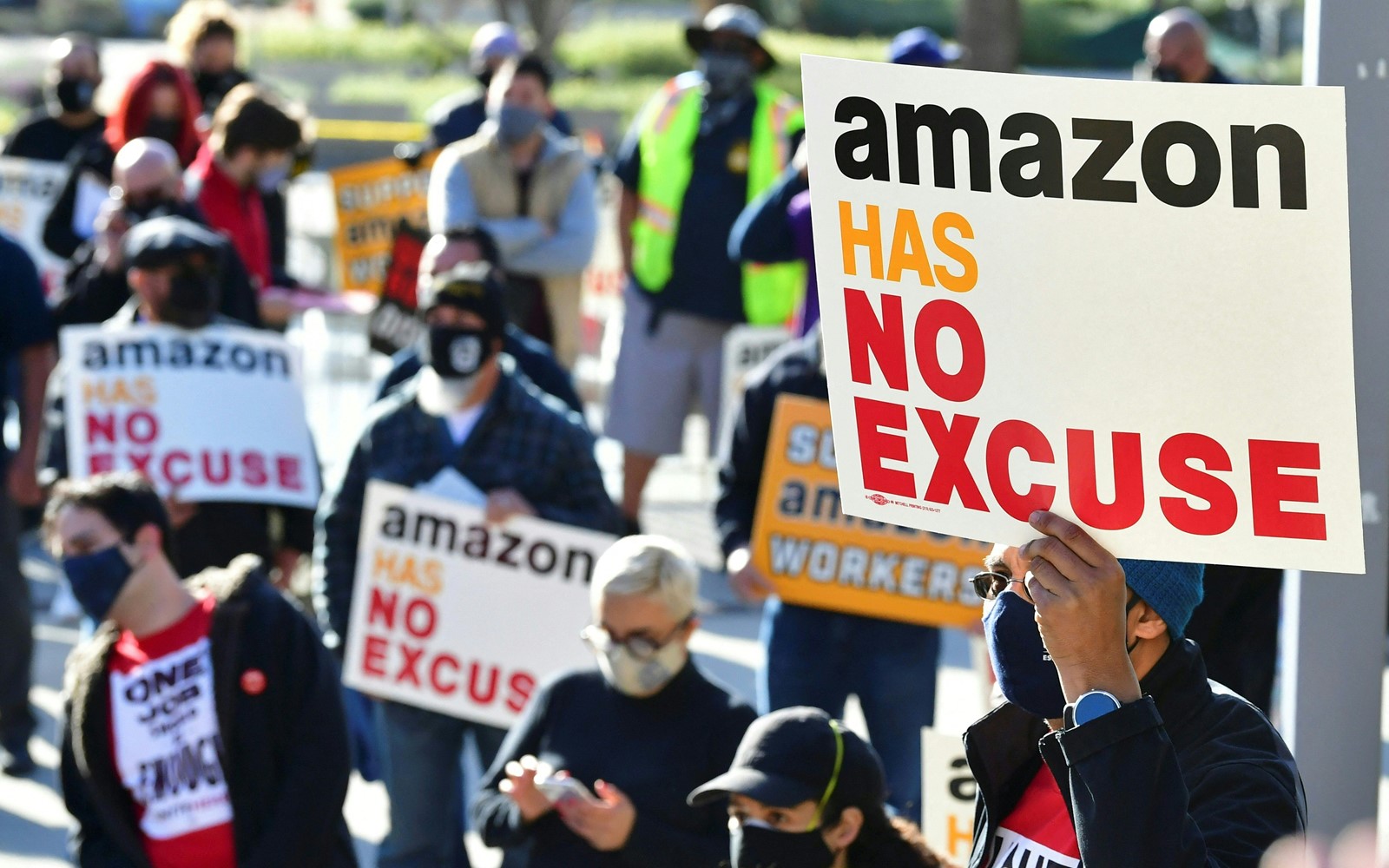
Amazon, SpaceX, Starbucks and Trader Joe’s have all responded to allegations that they have violated labor laws with the same bold argument. The National Labor Relations Board, they assert in several ongoing legal proceedings, is unconstitutional.
SpaceX, for example, says that the NLRB is engaging in “an unlawful attempt … to subject Space X to an administrative proceeding whose structure violates Article II, the Fifth Amendment, and the Seventh Amendment of the Constitution of the United States.”
If these companies prevail, the entire process for holding union elections and for prosecuting employers who break labor laws could collapse. That would leave U.S. workers more vulnerable to exploitation.
The Supreme Court upheld the constitutionality of the board nearly a century ago, soon after President Franklin D. Roosevelt signed the law that created the NLRB and made clear that workers have the right to organize and bargain collectively. Justices have also rejected similar arguments in cases involving other agencies.
As a law professor who researches labor law and constitutional law and a former labor organizer, I am deeply concerned, but not surprised, by these attacks on the federal agency that has protected U.S. workers’ right to organize unions and bargain collectively with their employers since the 1930s.
These corporations seem to believe they will find a sympathetic audience before the conservative justices that occupy six of the Supreme Court’s nine seats. In a series of prior cases, the conservative justices have already weakened administrative agencies and cut back on workers’ rights.
Growing support for unions
The corporate attack on the NLRB also seems to be a response to growing support for unions among Americans.
Workers at the companies that are challenging the NLRB’s constitutionality have all begun to organize unions in recent years, with numerous, high-profile, union-organizing wins. Workers across numerous sectors, including auto, education, health care and Hollywood, have recently held successful strikes.
What’s more, the NLRB has been more assertive in prosecuting employers for violating workers’ rights, and it has been revising rules in ways that make it easier for workers to organize.
The Supreme Court and big business
This is not the first time that big business has tried to use constitutional law arguments in an effort to stop union organizing and limit workers’ rights.
From the 1890s to the 1930s, during what is known as the “Lochner era,” corporations argued that laws protecting workers’ rights, including the right to organize unions or be paid a minimum wage, violated their “freedom to contract” and exceeded Congress’ power under the Constitution.
Back then, the Supreme Court routinely sided with business.
It struck down hundreds of laws, including minimum wage laws, overtime laws and laws prohibiting child labor. It prohibited strikes, including in the railroad and mining industries. It allowed labor leaders to be jailed. These rulings helped corporations grow wealthier and more powerful.
Only after mass uprisings by over 1 million workers, economic distress wrought by the Great Depression and overwhelming popular support for the New Deal did the Supreme Court finally change course, recognizing that it had made a mistake.
During the New Deal, the justices ruled that Congress has the power under the Constitution to pass minimum labor standards and to create agencies, such as the National Labor Relations Board, to protect workers and consumers.
Letting agencies make decisions
Now, nearly 100 years later, the NLRB’s foes contend that the labor board violates the separation of powers — the constitutional principle that the judicial, legislative and executive branches of government have distinct powers — because it mixes executive and judicial functions.
They also argue that the board is unconstitutional because presidents cannot fire the NLRB’s members or administrative law judges whenever they want.
But the Supreme Court has long permitted all of these features, not only for the NLRB but for other government agencies as well..
Assessing what’s at stake
If these corporations prevail with their constitutional challenges, the NLRB will no longer be able to function.
Currently, it can be very difficult for workers to organize unions, partly because of insufficient penalties and protections in labor law. But if the corporations win, there will no longer be an agency in place to safeguard workers’ rights to organize unions and to negotiate fair contracts with their employers.
Indeed, this threat goes beyond labor rights.
If the NLRB is found to violate the Constitution, other government agencies could be at risk as well, including the Securities and Exchange Commission, the Federal Election Commission and the Federal Trade Commission. That would endanger investors, voters and consumers — all Americans.
Workers are organizing in greater numbers than they have in decades. History teaches that when there is sufficient popular support for unions and workers’ rights, and sufficient mobilization among workers, the Supreme Court sometimes backs off and corporations give up their fight against workers’ rights.
Indeed, even Starbucks recently agreed to begin negotiating with its workers after years of illegally — according to the NLRB — refusing to bargain with them.
Kate Andrias is a professor of law at Columbia University.
This article is republished from The Conversation under a Creative Commons license.


 PREVIOUS ARTICLE
PREVIOUS ARTICLE
